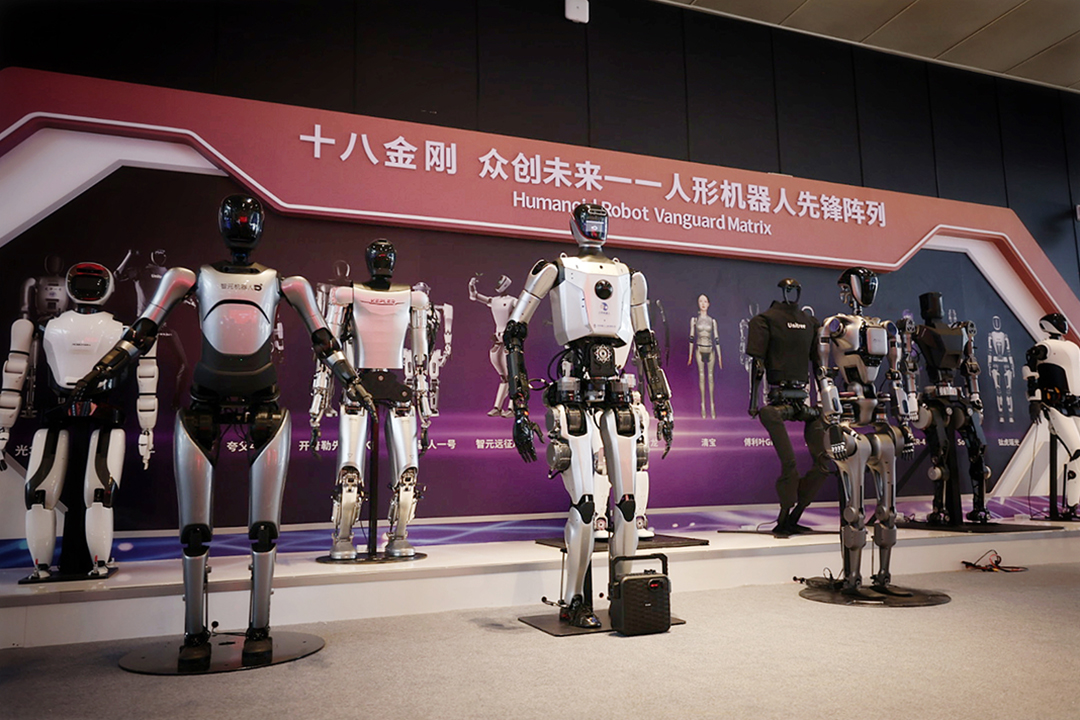 Tesla, Dataa, Other Firms Showcase 25 Humanoid Robots at WAIC
Tesla, Dataa, Other Firms Showcase 25 Humanoid Robots at WAIC(Yicai) July 5 -- Chinese and foreign companies, such as Dataa Robotics and Tesla, have brought 25 humanoid robots to the four-day World Artificial Intelligence Conference that kicked off in Shanghai yesterday.
Eighteen of the 25 humanoid robots are on display at the Humanoid Robot Vanguard Matrix. They attracted many visitors curious to discover the robots’ skills and interact with them.
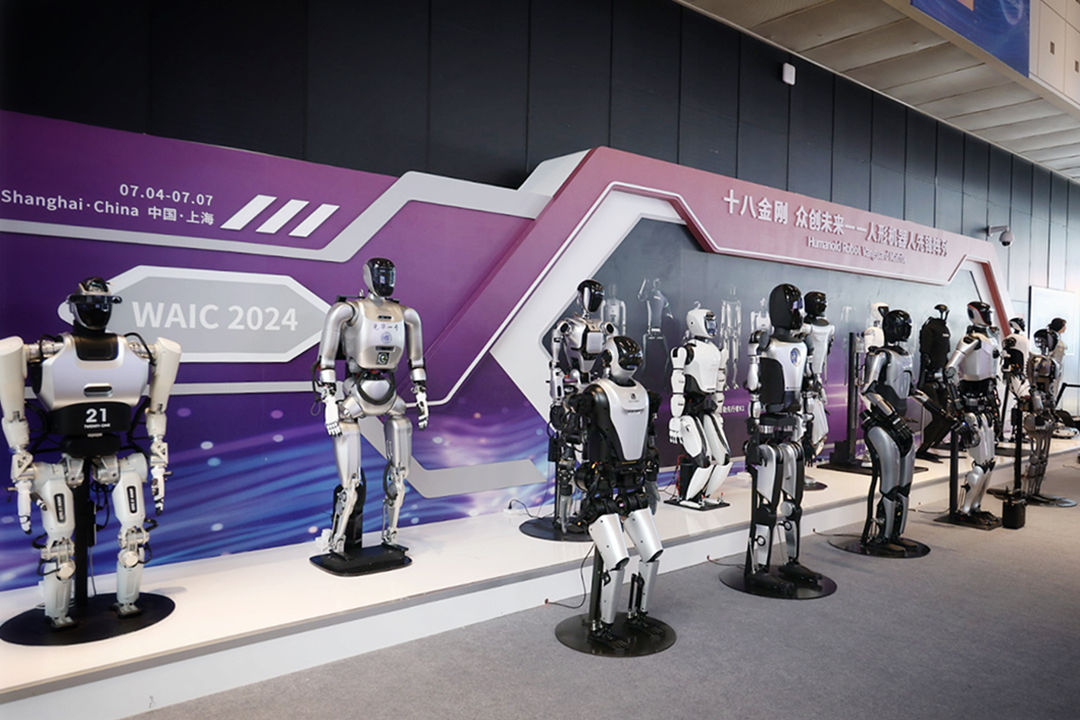
Young visitors check out Dataa’s intelligent humanoid robot XR4. Priced from CNY399,000 (USD54,900), XR4 has more than 50 degrees of freedom and is equipped with RobotGPT, a smart robot application field-focused AI model that enables robots to understand human utterances and respond accordingly.
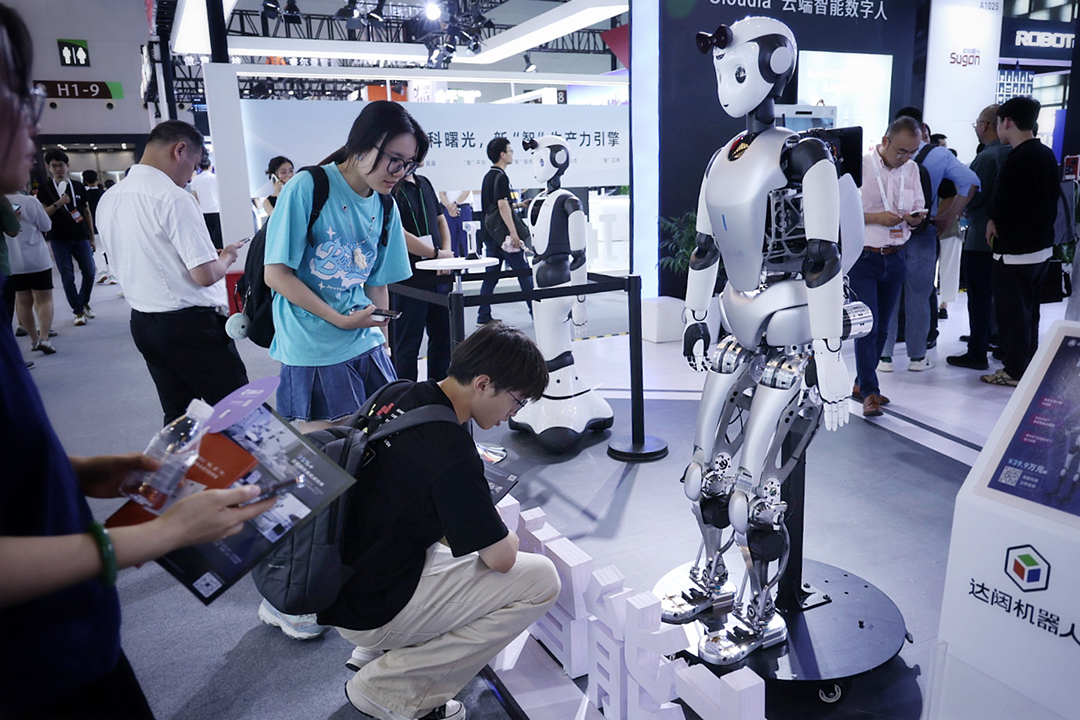
A crowd of visitors takes pictures of Tesla’s Optimus. The humanoid robot’s new generation can achieve a speed 30 percent faster than its previous version and has improved balance and body control. Next year, more than 1,000 Optimus robots are expected to be introduced in the US automaker’s factories to assist production.
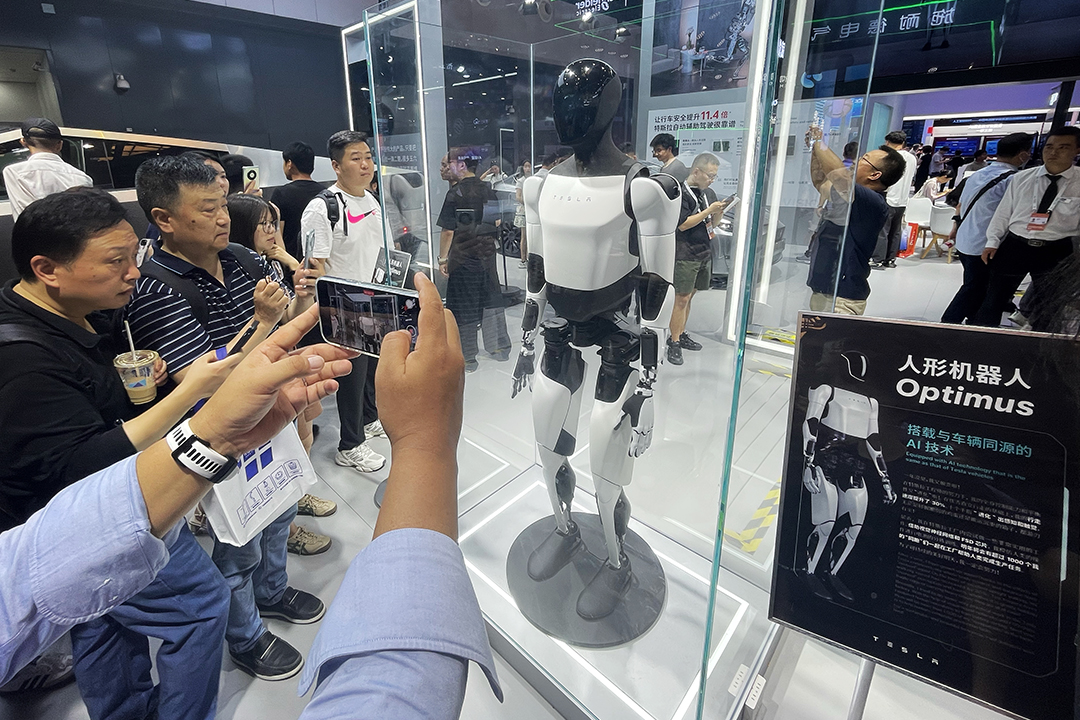
Staffers from Humanoid Robot (Shanghai) carry out a demonstration of Qinglong. As China’s first full-size open-source general-purpose humanoid robot, Qinglong can smoothly walk fast, avoid obstacles, go uphill and downhill, and prevent hits and interference.
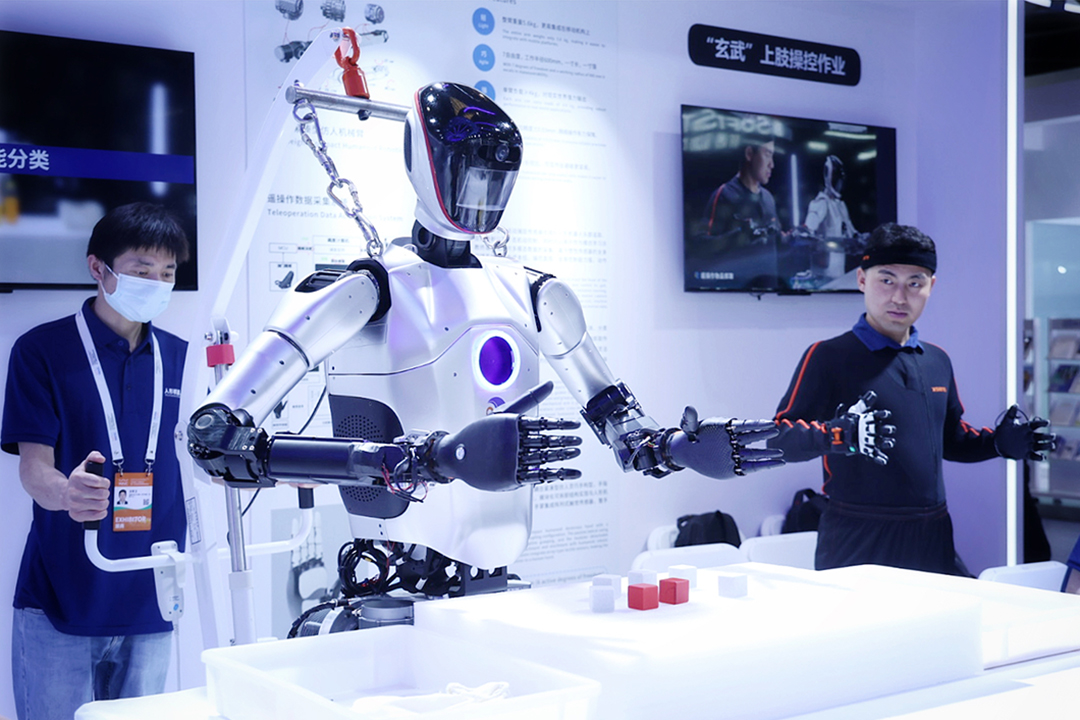
A curious visitor leans out to get a better look at Fourier GR-1, developed by Shanghai-based Fourier Intelligence. The robot, which can imitate various human movements, has been already put in use at the reception of science and technology museums. It can also be used in education, industry, inspection, and display scenarios.
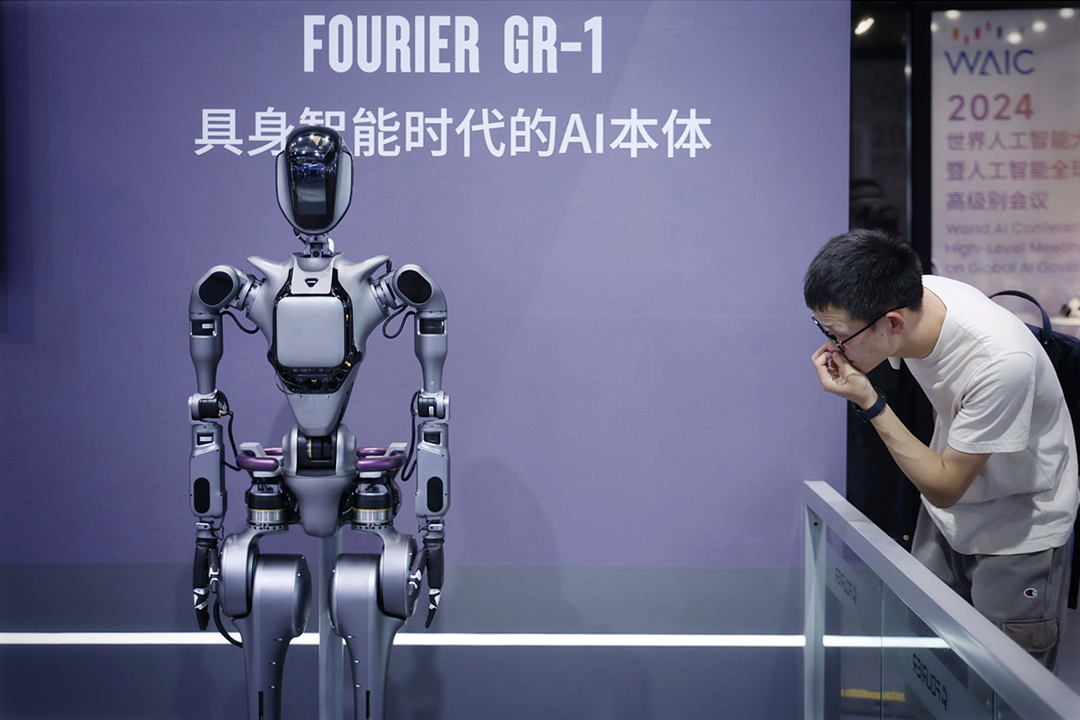
The price of the Fourier GR-1 varies from hundreds of thousands to over one million Chinese yuan, equivalent to tens to hundreds of thousands of US dollars.
Employees from China’s Kepler Exploration Robot position Kepler Forerunner K1 at its designated exhibition area while visitors take pictures of the general-purpose humanoid robot. The Kepler Forerunner K1 can carry objects of up to 30 kilograms with both hands.
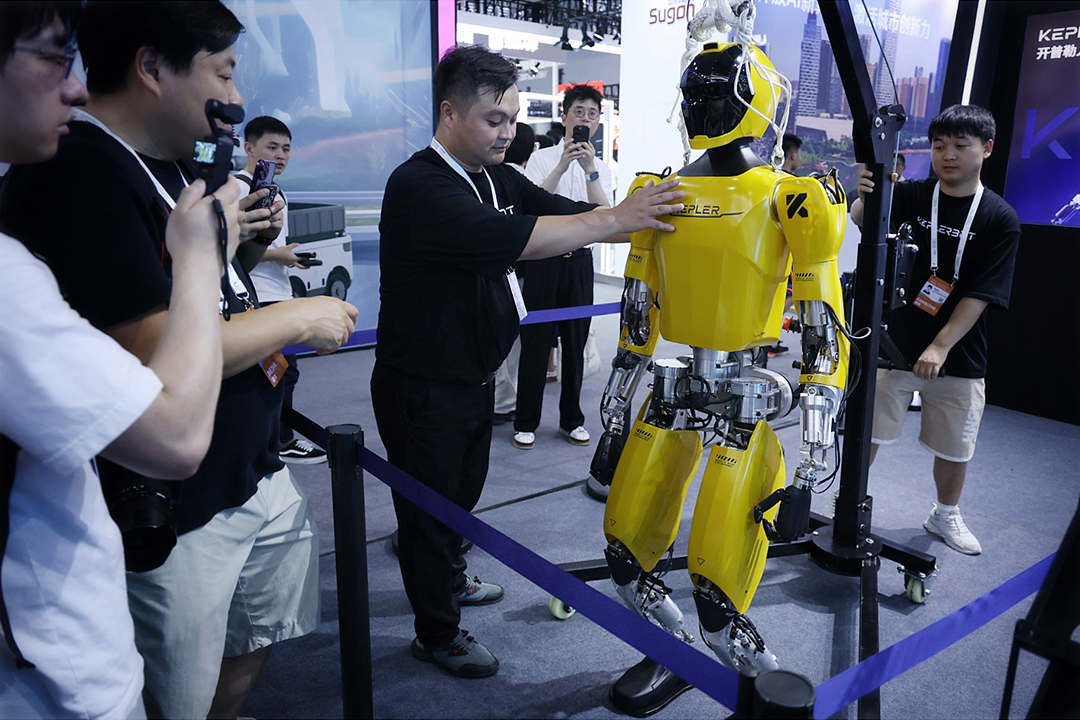
Kepler Forerunner K1 is expected to start mass production and delivery this year, with most of the demand coming from AI companies, technology institutions, and system integration firms, Chief Executive Hu Debo said. Kepler Exploration may ship hundreds of units next year, Hu noted, adding that with higher production and lower costs, the robot could be sold at about USD30,000 per unit this year.
Editor: Futura Costaglione